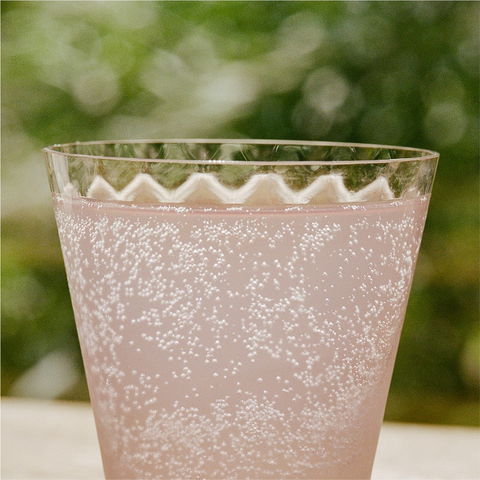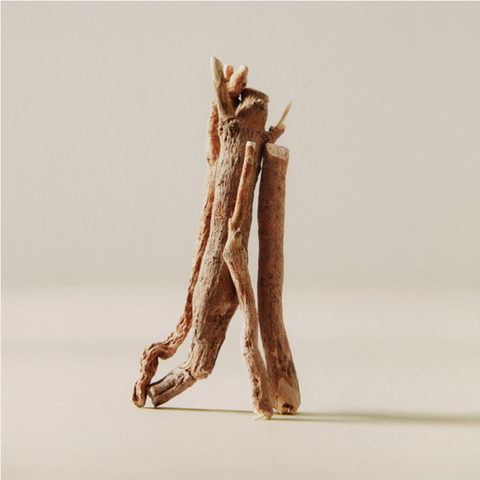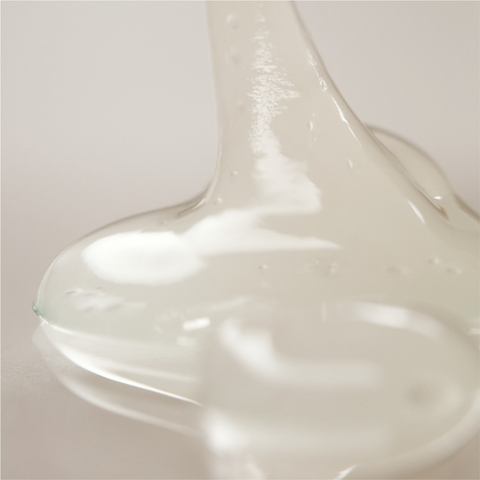Traditionally used as a beauty tonic in Ayurveda, Amla (or Indian gooseberry) comes from the round green fruits of a small, thorny tree native to southeastern Asia. Amla Powder, prized for its antioxidant components and adaptogenic potential, it’s used to support a healthy inflammatory response and nourish tissues from blood vessels to the skin. Read on to discover the different ways you can use amla powder.
8 Ways to Use Amla Powder
Prized for its antioxidant components and adaptogenic potential, also goes by the scientific names Phyllanthus emblica and Emblica officinalis. Studies show that the Amla fruit is rich in Vitamin C and phytonutrients like flavonoids and polyphenols, which demonstrate antioxidant activity.
While it’s long been hailed as a potent beauty tonic and respiratory support, clinical studies on this plant are now catching up to traditional Amla powder uses. More research needs to be done, but here’s what we know about the benefits of Amla powder.
1. For Skin
Because of its antioxidant properties, many people use Amla for skin. Thanks to its impressive Vitamin C content, Amla is a helpful protector of the skin, and its antioxidants guard against accelerated aging from oxidative stress. Additionally, Amla may help counter the breakdown of your body’s collagen, helping support the skin’s elasticity.
2. For Hair Health
This beauty adaptogen has also been said to promote healthy hair, skin, and teeth. Some evidence suggests that Amla may help inhibit an enzyme that contributes to hair loss. In a study of 17 traditional Thai plants commonly used for hair treatment, Amla was the second most potent inhibitor of 5α-reductase.
In one clinical study on men and women with hair loss, 2-3.5 daily milliliters of hair oil containing Amla extract, coconut water, selenium, sandalwood, and peanut shell extract was found to significantly improve hair growth and density after 90 days of use. While more studies need to be done, this Ayurvedic herb is showing great potential when it comes to hair health and skin care.
3. For Stress
Considered one of the best natural remedies for stress relief, dried Amla is used to soothe both muscles and the mind. It’s also been used to provide greater support to the respiratory system. That’s because Amla has been shown to improve lung capacity and oxygen intake, which may allow you to breathe more deeply and achieve a calm state of mind.
4. For Vision
This Ayurvedic herb may also help with maintaining good eyesight. In laboratory studies, Amla extract has been shown to help protect against age-related macular degeneration by displaying cytoprotective advantages in improving the cellular and mitochondrial health of eye cells.
5. For Heart Health
Amla is frequently used to support heart health. According to several studies, Amla may help normalize blood lipid levels, including lowering triglycerides and LDL (bad) cholesterol. By acting as a vasodilator (which essentially widens blood vessels), Amla may contribute to lowering high blood pressure levels. It may also possess anti-platelet effects that could help defend against the formation of blood clots.
6. For the Liver
With its rich antioxidant properties and potential to support a healthy inflammatory response, Amla extract or powder may help improve liver function by protecting it from damage caused by toxins and harmful free radicals.
7. For Blood Sugar Health
Amla has a low glycemic index and may help regulate blood sugar levels. In a small study involving 32 participants, those who consumed 1-3 grams of Amla powder daily experienced a notable reduction in blood sugar levels following fasting or meals when compared to the control group.
8. For the Immune System
Showing benefits to your liver and white blood cell count, Amla contributes to a healthy immune response with its high Vitamin C content. Vitamin C plays a key role in supporting both the innate and adaptive immune system, aiding in the equilibrium of your immune function to enhance your body's ability to protect against potential threats.

How to Take Amla Powder
There are several ways you can use Amla powder. It can be as simple as taking a capsule of organic Amla powder or adding it to smoothies.
Amla Powder
Moon Juice Amla powder is a light powder with a tart flavor and subtle hints of tropical fruitiness. If you’re wondering how to use Amla powder for drinking, we recommend an Amla powder dosage of 1/8 to 1/3 teaspoon per day with your smoothie or other drink.
Here’s one of our favorite ways to use Amla powder in the kitchen for edible radiance.
Amla, Strawberry, Rose Sorbet
- 2 cups frozen strawberries
- 2 tablespoons rose water
- 1 tablespoon honey or 3 drops stevia
- ⅓ teaspoon Amla
Combine all of the ingredients and blend on high until smooth. If you have a blender with a tamper, you’ll want to use it to work the berries down. If you don’t, add 1/4 cup water to get the puree started.
To get your Amla in an adaptogenic supplement, find it in SuperYou®, our natural stress relief supplement* Amla is paired with Ashwagandha Root, Rhodiola Root, and Shatavari to improve energy, mood, and focus.*
Takeaways
Organic Amla powder offers a host of health benefits that make it the perfect addition to your wellness cabinet. This herbal support is rich in antioxidants, particularly Vitamin C, which helps combat oxidative stress, bolster the immune system, and nourish your skin. Its liver-supporting and heart-healthy properties can also contribute to better balance from within. Whether you choose to use this Indian Gooseberry powder to support healthy hair or you want to benefit from its anti-inflammatory properties, Amla extract is the perfect Ayurvedic herb to support your mind and body.
Sources
- National Library of Medicine, Antioxidant, anti-collagenase and anti-elastase activities of Phyllanthus emblica, Manilkara zapota and silymarin: an in vitro comparative study for anti-aging applications
- National Library of Medicine, Anti-Aging Potential of Phytoextract Loaded-Pharmaceutical Creams for Human Skin Cell Longetivity https://pubmed.ncbi.nlm.nih.gov/26448818/
- Innovare Journal of Ayurvedic Sciences, Traditional Indian Herb Emblica Officinalis and Its Medical Importance https://www.researchgate.net/profile/Pushpendra-Jain-4/publication/306091795_TRADITIONAL_INDIAN_HERB_EMBLICA_OFFICINALIS_AND_ITS_MEDICINAL_IMPORTANCE/links/57af70a508aeb2cf17c28284/TRADITIONAL-INDIAN-HERB-EMBLICA-OFFICINALIS-AND-ITS-MEDICINAL-IMPORTANCE.pdf
- National Library of Medicine, 5α-reductase inhibition and hair growth promotion of some Thai plants traditionally used for hair treatment https://pubmed.ncbi.nlm.nih.gov/22178180/
- National Library of Medicine, Clinical Study to Evaluate the Efficacy and Safety of a Hair Serum Product in Healthy Adult Male and Female Volunteers with Hair Fall https://www.ncbi.nlm.nih.gov/pmc/articles/PMC7522433/#cit0030
- National Library of Medicine, Amla Enhances Mitochondrial Spare Respiratory Capacity by Increasing Mitochondrial Biogenesis and Antioxidant Systems in a Murine Skeletal Muscle Cell Line https://pubmed.ncbi.nlm.nih.gov/27340504/
- National Library of Medicine, Nutraceutical effects of Emblicaofficinalis in age-related macular degeneration https://www.aging-us.com/article/101820/text
- National Library of Medicine, A Pilot clinical study to evaluate the effect of Emblica officinalis extract (Amlamax™) on markers of systemic inflammation and dyslipidemia https://pubmed.ncbi.nlm.nih.gov/23105791/
- National Library of Medicine, A systematic review on the cardiovascular pharmacology of Emblica officinalis Gaertn https://pubmed.ncbi.nlm.nih.gov/30386531/
- National Library of Medicine, Effect of Amla fruit (Emblica officinalis Gaertn.) on blood glucose and lipid profile of normal subjects and type 2 diabetic patients https://pubmed.ncbi.nlm.nih.gov/21495900/
- MedicineNet, Indian Gooseberry: Benefits, Uses, and Side Effects https://www.medicinenet.com/indian_gooseberry_benefits_uses_and_side_effects/article.htm












